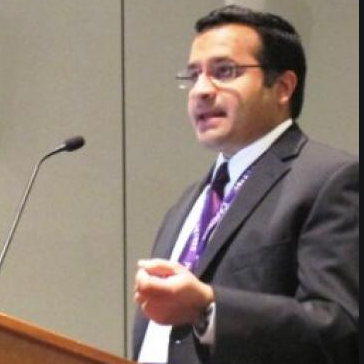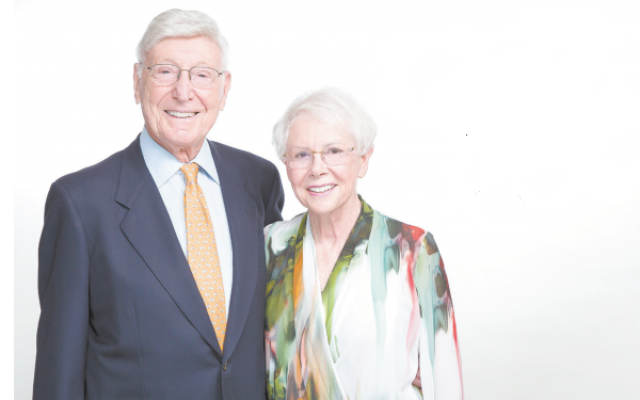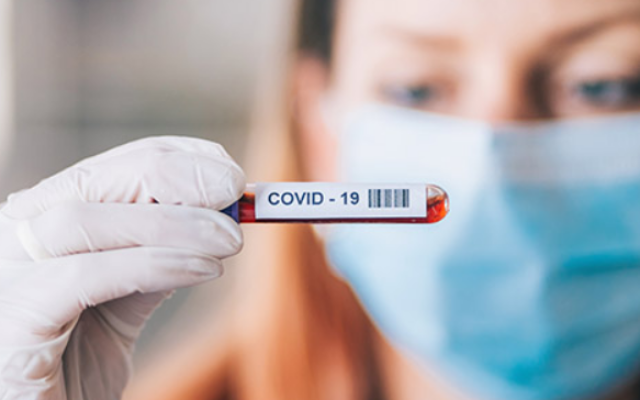Marcus Foundation Funds New Emory Testing Program
Emory University developed a new blood test to increase coronavirus tracking and The Marcus Foundation in Atlanta donated $3 million to support its development.
Emory University has developed a new blood test with the support of The Marcus Foundation, that it hopes will dramatically and effectively increase how the COVID-19 virus is tracked. The test, which will initially only be offered through Emory’s medical testing lab, is designed to indicate how a person who has been infected by the virus has responded to the disease.
The Marcus Foundation in Atlanta has donated $3 million to support the development and broader use of the testing procedure. Bernie Marcus, one of the founders of The Home Depot, hailed the Emory program.
“This test will be important, as we manage the virus, going forward, both to determine who has immunity and also to determine how antibodies can be a key to a vaccine or treatment.”
One of the Emory researchers who helped develop the test, Dr. Aneesh Mehta, believes it will provide important new information about how the virus has impacted local communities.

“This test, I think, is going to be vitally important not only to identify people who become infected, but also as we offer it to a broader audience, be able to really detect the impact of COVID-19 is having on communities and how widespread the infection is,” Dr. Mehta said.
Initially Emory only plans to test about 300 people a day within the Emory Healthcare system, including some outpatients, healthcare providers and staff members. Some may have experienced only very minor symptoms or perhaps no symptoms of the infection at all. The test is designed to measure the presence of antibodies in the blood, which are created in the process of fighting off the disease.
According to Dr. Mehta and other health professionals, testing for antibodies is an important step in helping local communities decide when and how to resume a more normal daily life.
“We’ll be able to explore in our communities in Georgia and throughout the country who has been impacted, which communities have really seen this infection, even if they weren’t sick enough to come into the hospital.”
By mid-June the Emory researchers hope to be able to be testing 5,000 blood samples a day, with the results available within 24 hours. The testing is hoped to be an important part of the plan to control the spread of the virus this summer.

Support for the testing program is just one of the moves The Marcus Foundation has made to provide funding for local healthcare. Earlier this month, on April 13, the foundation donated $2.1 million to help the Grady Healthcare System add 52 beds to its treatment capacity. Also, this month saw the opening of the new Marcus Tower to patients at Piedmont Atlanta Hospital. It was built with a $75 million gift from Bernie Marcus and his wife, Billi.
According to a recent report in The New York Times, there has been a significant increase in antibody testing around the country. The Food and Drug Administration has helped about 90 companies get their antibody testing products to market. The Times called the process of allowing companies to offer antibody tests without the approval or review of the FDA a “medical free for all,” with very mixed results.
The move by Emory is expected to provide a more rigorous approach to developing a standardized testing procedure for antibodies, according to Dr. Mehta at Emory, and to find answers to some important questions that are yet to be answered.
“Here at Emory, we’re very interested in knowing do these antibodies protect us?” he said. “And when do those protective antibodies come about? And so, in the next few weeks, we’ll have more data on that”
Similar questions are being asked in other nations as well. Germany, which has been among the most successful nations in controlling the spread of the virus, intends to test its entire population of 83 million persons for antibodies in the coming months. In other countries, such as Iceland and South Korea, which have had similar success with the disease, antibody testing is being combined with digital tracking of individuals.
However, the World Health Organization on Friday, April 24, said that the presence of antibodies does not guarantee that a person is immune to reinfection with the virus. In a written statement, the WHO said, “At this point in the pandemic, there is not enough evidence about the effectiveness of antibody-mediated immunity to guarantee the accuracy of an “immunity passport” or “risk-free certificate.”
The goal of antibody testing is to help determine which of the social and economic restrictions that have been imposed are the most effective and which of them can be safely ended.
In Georgia, which has generally seen as slow to ramp up its testing program for the virus, added more test locations in the state April 15. Only a little over 101,000 Georgians in a population of 10.6 million people have been tested for the COVID- 19 virus.
Still, Emory’s new test vaults the university’s research facility to the forefront of the nation’s effort to come up with a good serological test for antibodies. For Marcus, it’s an encouraging sign.
“While there is a lot of ongoing discussion about serological testing,” he said, “Emory’s test is one of the first in the nation that has the level of specificity and the sensitivity that is critical for truly identifying immunity and antibodies.”




comments